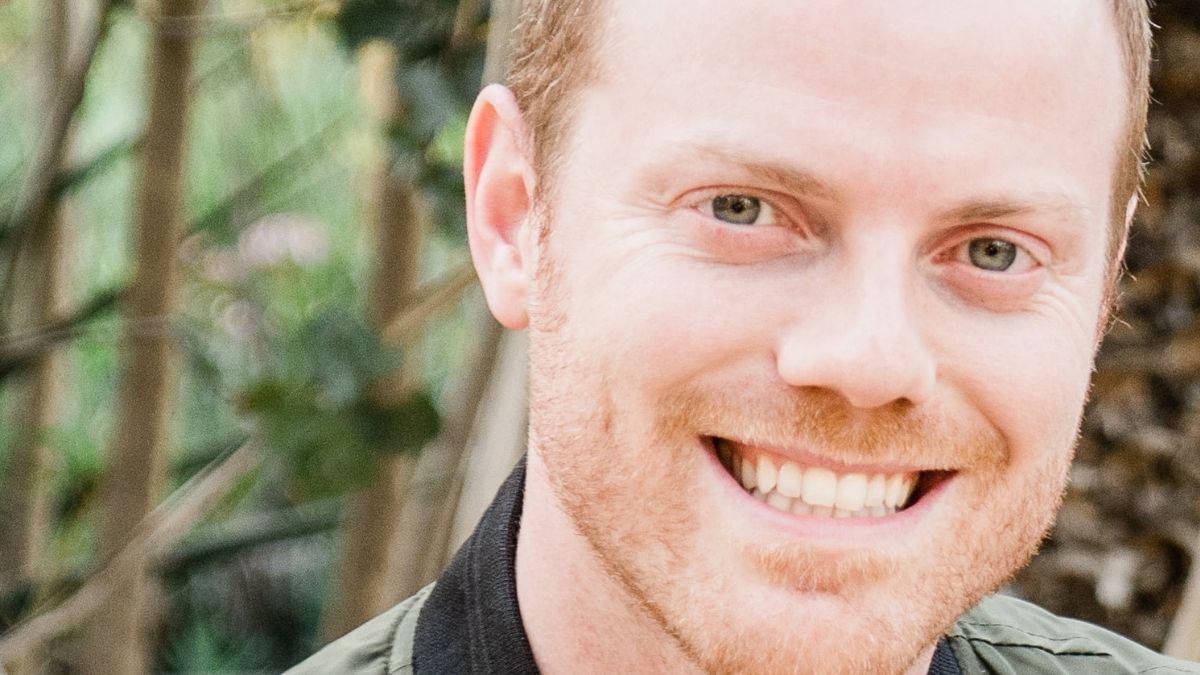How a Passion for Tennis Ignites a Business Career
What is the spark that starts a business? For some, it is the identification of a gap in the market. for others, it’s a technological breakthrough. But for so many of the most authentic and soulful businesses I have ever encountered, the spark is something far more primal and powerful.
It is passion.
It’s a love for something so deep that it becomes a part of your identity. It’s the thing you do in your spare time, the topic you can talk about for hours, the activity that makes you feel most alive. And one day, a question begins to form in your mind: "Could I turn this thing I love into the thing I do for a living?"
This is the beautiful, terrifying, and exhilarating starting point for so many entrepreneurial journeys. And it was the very essence of a wonderfully energetic conversation I recently had on my podcast with Tim, a relatively new entrepreneur with an absolutely infectious passion for tennis and fitness.
Tim has taken his love for the sport and built a business around it. He’s on the court, he’s coaching, and he’s living his passion. But like all smart founders, he’s realised that passion alone is not a business model. He is now at a crucial inflection point, asking the big, strategic questions: How do I grow and diversify beyond my current model? How do I balance what I learn from experience with what I could learn from formal education? How do I take this passion and build a real, scalable, enduring enterprise around it?
Our conversation was a fantastic exploration of how to build the strategic scaffolding around a passion-driven business.
Today, inspired by Tim's incredible drive, I want to give you my definitive guide on how to take your passion and turn it into a profession, without losing the magic that started it all.
The Founder's Education - The School of Hard Knocks vs. Formal Learning
Tim raised a question that is a classic for many first-time founders who, like him, have dived in headfirst. He's built his own website and learned on the fly, and now he wonders about the value of formal education versus this "school of hard knocks."
My answer is this: It is not, and has never been, an "either/or" question. The most successful entrepreneurs I know are masters of "both/and." They are lifelong learners who seamlessly blend practical, real-world experience with structured, formal knowledge.
The Power of the School of Hard Knocks (Your MVP Phase):
This is where every founder must start. It is irreplaceable. Building your own website, as Tim did, is a perfect example. Was it the most professional, technically perfect website in the world? Probably not. But the act of building it taught him more than any textbook ever could.
- It teaches you what you don't know. You quickly discover the gaps in your own knowledge.
- It forces you to be resourceful. When you have no budget, you find creative, low-cost ways to get things done.
- It connects you directly to the work. You understand the fundamentals of your business at a granular level.
The school of hard knocks is how you earn your stripes. It’s how you get from zero to one. But staying in this mode forever is a trap. It's the path to burnout, because you are always reinventing the wheel.
The Power of Formal Learning (Your Scaling Phase):
When I say "formal learning," I don't necessarily mean a three-year university degree. In today's world, it can take many forms:
- An online course on digital marketing.
- A weekend workshop on business finance.
- Reading a curated list of the best business books.
- Hiring a coach or joining a mastermind group of your peers.
The purpose of this structured learning is to give you frameworks and shortcuts. It is about learning from the mistakes and successes of the thousands who have gone before you. Why spend two years and $10,000 trying to figure out Google Ads through trial and error when you can take a $500 course and learn the proven methodology in a week?
The school of hard knocks gives you the context. Formal learning gives you the strategy. A great founder is constantly cycling between the two—learning a new concept, applying it in the real world, seeing what works, and then seeking out more knowledge to refine their approach.
The Growth Challenge - Moving Beyond Trading Time for Money
This is the central challenge Tim is facing, and it's one that every service-based entrepreneur, coach, or consultant will confront. His current business model is based on his personal time and expertise. This is a great way to start, but it has a hard, physical ceiling. There are only so many hours in a day. You cannot clone yourself.
To truly grow, you must find ways to decouple your revenue from your personal time. You must find leverage. This is the process of moving from a one-to-one model to a one-to-many model.
For a business like Tim's, this diversification could look like a stairstep of increasing leverage:
- Step 1: One-to-Few (Group Coaching): This is the first, most logical step. Instead of one-on-one lessons, you can run group clinics, school holiday camps, or corporate team-building tennis days. You are still trading time for money, but you are leveraging that one hour across five, ten, or twenty people.
- Step 2: Digital Products (Build Once, Sell Many Times): This is where true scale begins. You can take your expertise and package it into a digital format.
- Online Courses: "The 6-Week Serve Transformation Program."
- E-books: "The Ultimate Guide to Tennis Fitness for the Busy Professional."
- Video Tutorials: A library of short videos on specific techniques.
These products can be sold to anyone in the world, 24/7, without requiring any of your personal time for delivery.
- Step 3: Physical Products (Expanding Your Brand): You can move into e-commerce. This could be creating your own branded line of tennis apparel, or curating and selling a "Beginner's Tennis Starter Kit" with your favourite recommended gear. This creates another revenue stream that is not dependent on your presence on the court.
- Step 4: Community/Platform (The Ultimate Leverage): This is the holy grail. You can build a membership community for passionate tennis players. For a monthly fee, members get access to your digital products, exclusive content (like interviews with other experts), a forum to connect with each other, and perhaps a monthly live Q&A with you. You are no longer just a coach; you are the leader of a thriving community.
The key is to see your business not just as a service you provide, but as a brand and an ecosystem of products that all stem from your core passion and expertise.
Passion - Your Greatest Superpower and Your Biggest Blind Spot
Tim's passion for tennis is his superpower. You can hear it in his voice. It's the energy that attracts clients, builds rapport, and fuels him through the hard days of building a business from scratch. In a world of sterile, corporate brands, genuine passion is a magnetic force. It is the core of his competitive advantage.
However, unchecked passion can also be a founder's biggest blind spot.
- It can lead to underpricing. Because you love what you do, you can feel guilty about charging what you're truly worth. You think, "I'd almost do this for free!" This is a noble sentiment but a terrible business strategy.
- It can make delegation difficult. You believe that no one else can possibly coach with the same level of care and passion as you can. This keeps you trapped in the "doer" role and prevents you from scaling.
- It can cause you to neglect the "boring" parts of business. You love being on the court, but you might avoid looking at your financial statements, analysing your marketing metrics, or working on your administrative systems. But a business is a holistic entity; it will fail if its vital organs are neglected.
A great entrepreneur learns to channel their passion with discipline. They apply the same energy and desire for mastery that they have for their craft to the business itself. They become as passionate about understanding a profit and loss statement as they are about perfecting a backhand volley.
A Conversation Full of Infectious Energy
Our full conversation on the podcast is a real-time exploration of these very ideas. It's a live coaching session where we take Tim's raw, infectious passion and start to build a strategic framework around it. We workshop diversification ideas, we talk about the practical steps of learning the business side of things, and we map out a path forward.
To hear a founder at this exciting, potential-filled stage of the journey is a powerful reminder of why we all get into business in the first place.
From Passion to Profession, and Beyond
Tim's journey is a story that should inspire us all. He has taken the thing he loves and had the courage to turn it into his life's work. This is the first, most important step.
The next steps on his journey, and on the journey of any founder in his position, are about conscious, strategic evolution. It's about blending real-world hustle with structured learning. It's about finding clever ways to create leverage and scale beyond your own two hands. And it's about harnessing the incredible power of your passion while remaining disciplined and focused on the health of the entire business.
A passion is a spark. But a great business is a carefully constructed fire, designed to burn brightly and warmly for a very long time.
Frequently Asked Questions on Tennis Ignites a Passion for Business
1. How did the discipline and mindset of competitive tennis translate into a passion for business?
The discipline of competitive tennis translated directly into business by teaching the fundamental importance of process, focus, and resilience. Like tennis, business success requires breaking down a complex goal into repeatable, measurable steps. It taught the need for relentless self-assessment, the ability to maintain focus amidst external chaos, and the mental resilience to quickly bounce back from setbacks, viewing every failure as a data point for growth.
2. What is the business equivalent of knowing when to 'pivot' your strategy during a tennis match?
The business equivalent is strategic humility and data-driven agility. In a match, you pivot tactics when your current approach isn't working. In business, this means having the emotional intelligence to ignore ego, objectively analyze market feedback, and be willing to change the execution plan when the numbers demand it. This ability to pivot prevents a business from falling victim to the sunk cost fallacy.
3. How is the competitive advantage in business similar to finding an opponent's weakness in tennis?
The competitive advantage in business is similar in that it requires unambiguous clarity on the core pain point (the opponent's weakness) and relentless focus on exploiting that. In business, the weakness is the customer's unmet need or the competitor's high-friction process. Success comes from designing a superior, highly focused solution (the 'winning shot') and consistently delivering a frictionless experience that the competitor cannot match.
4. What role does external coaching (like a Non-Executive Director) play in both tennis and business?
External coaching plays a critical role by providing objective, non-emotional perspective and strategic accountability. A coach/NED sees the blind spots the player/founder cannot see, identifies counter-productive patterns, and holds them accountable for implementing disciplined, repeatable systems. They temper the player's passion with process, ensuring that effort is channeled into high-leverage activities that lead to measurable improvement.
5. What practical advice does this philosophy offer for maintaining high performance over a long career?
The practical advice for maintaining high performance is to adopt a 'Less is More' philosophy focused on the basics. This means relentlessly prioritizing a few core, high-impact activities (Purpose, Pillars, Values), eliminating unnecessary complexity, and consistently investing in the foundational systems and people that support growth. Longevity is built on repeatable excellence, not on constant, chaotic novelty.






